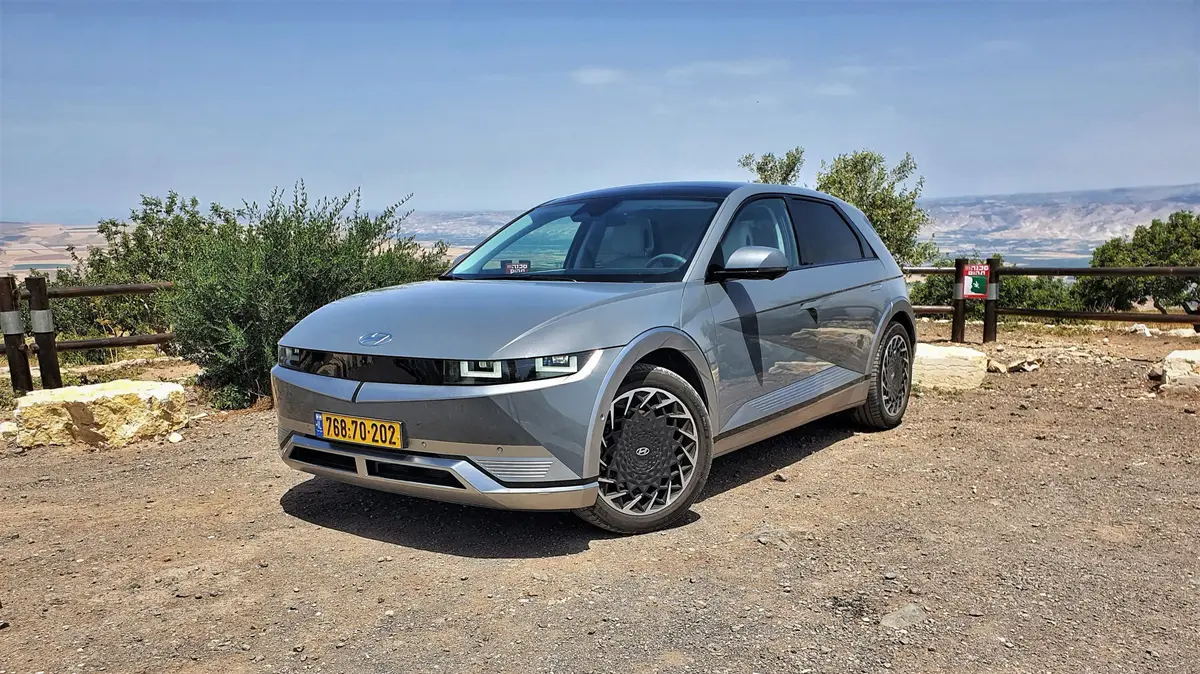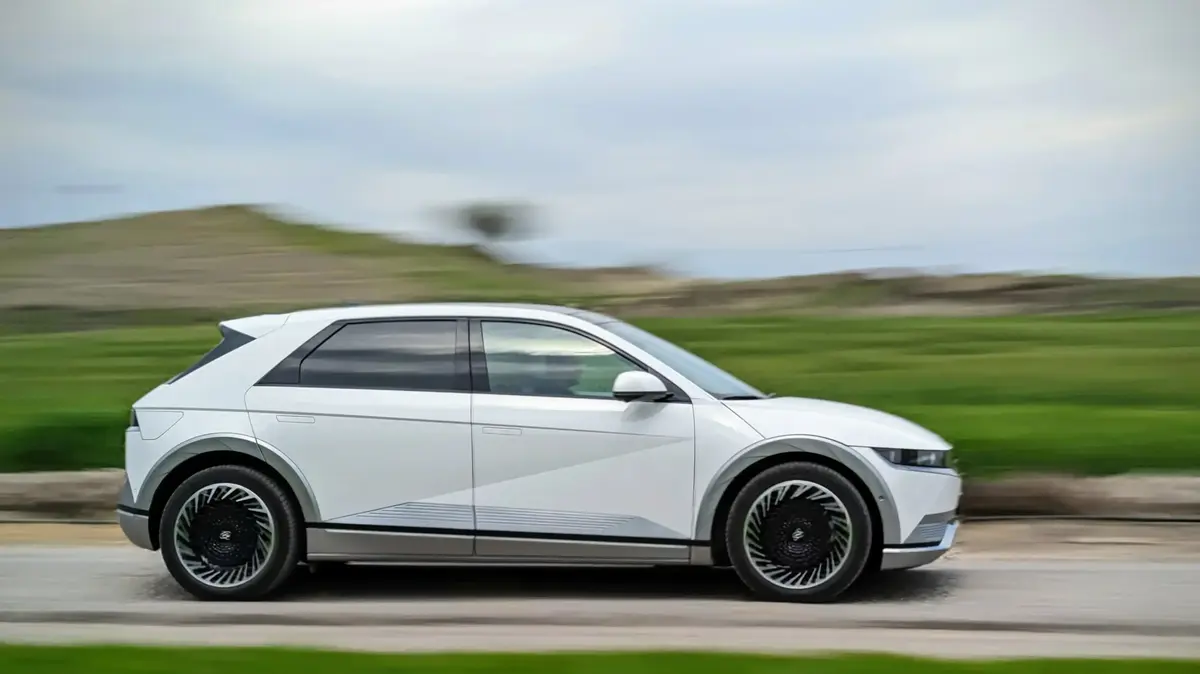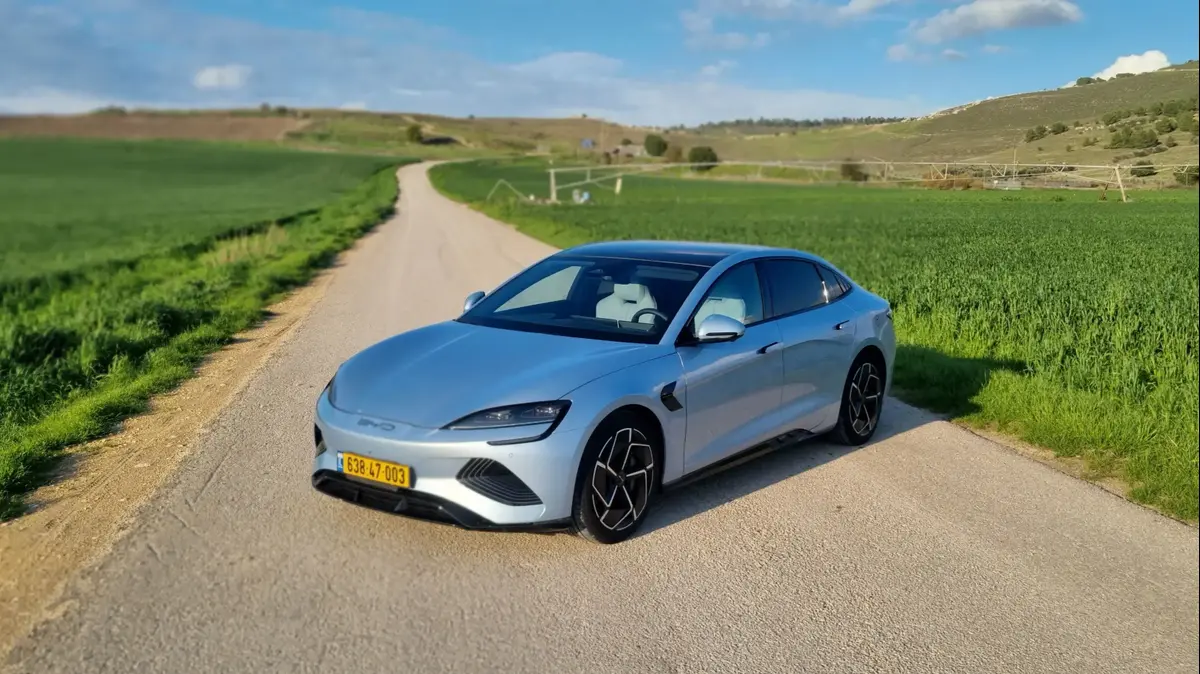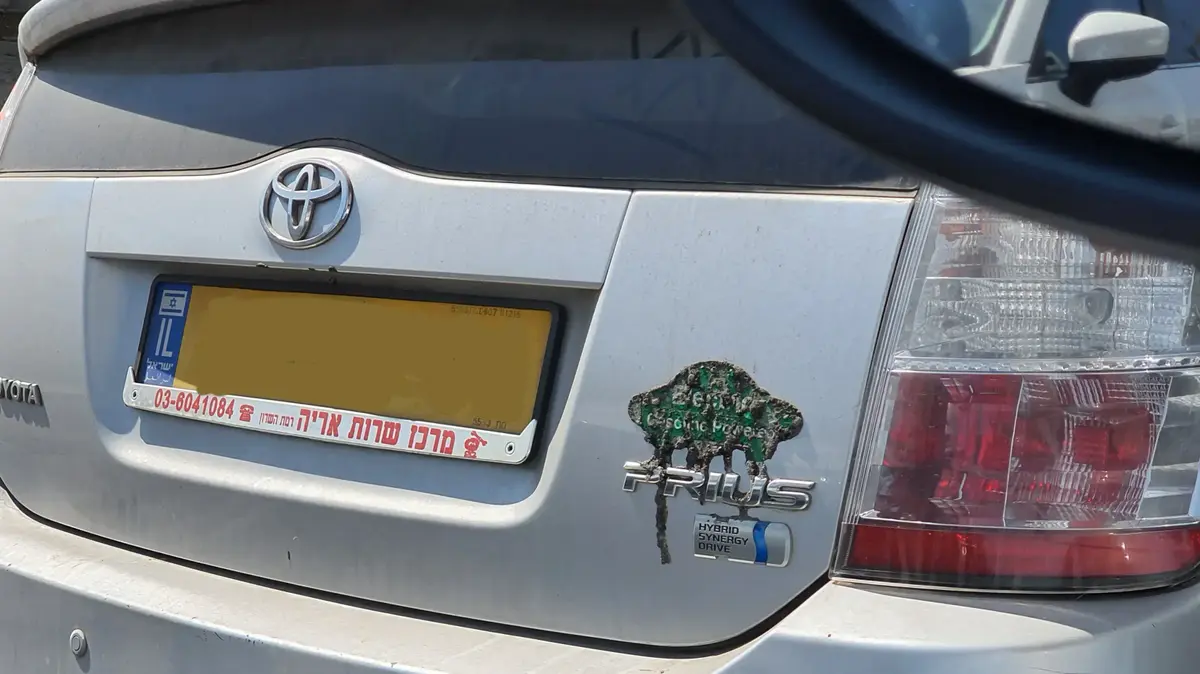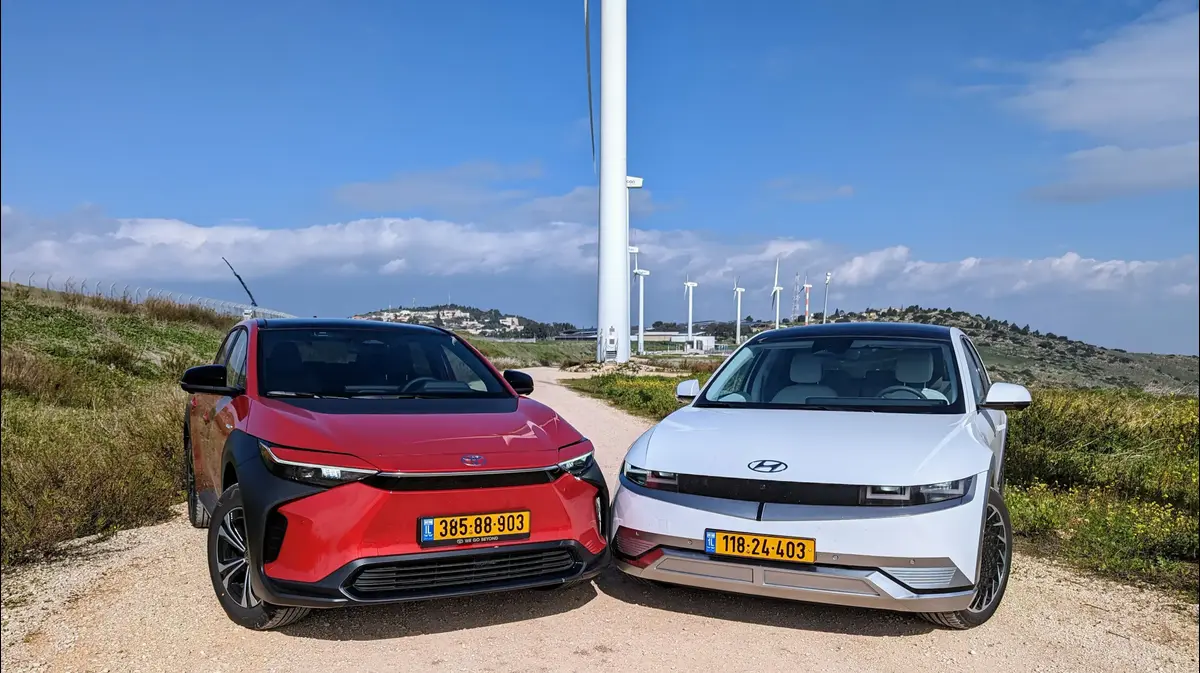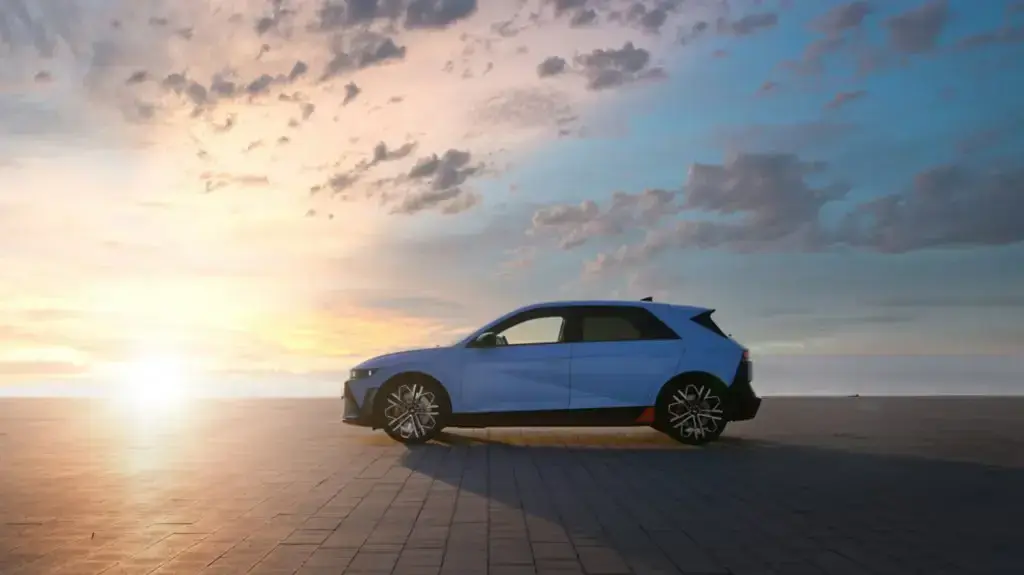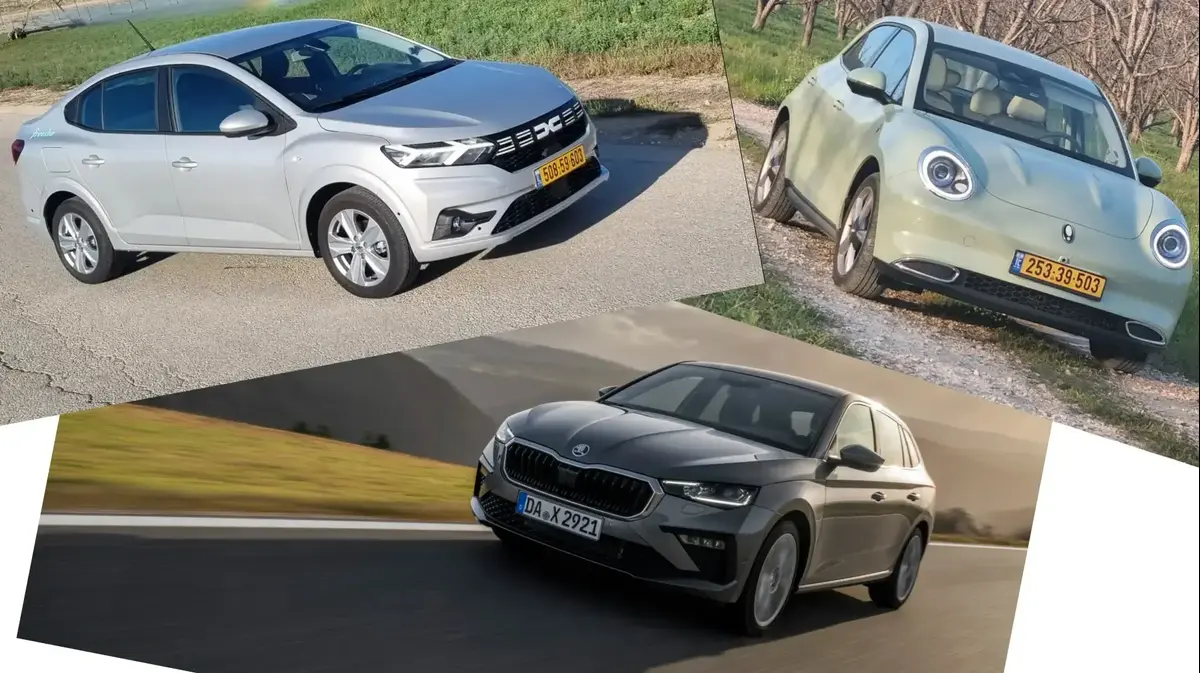Among the beneficiaries of the discount - Hyundai Ioniq 5 (Photo: Keinan Cohen)
With the official announcement of the approval of the trade agreements with South Korea and the elimination of the 7% tariff on products imported from the Asian country, Kalmobil, the importer of Hyundai to Israel, hastened to declare that it intends to pass this benefit on to customers.
The assumption at the time was that in the end the benefit to the customer is not expected to make an extraordinary change due to the changes in the taxation of electric models and the ongoing general increase in the cost of manufacturing and shipping new cars.
Now the importer is updating which models will be included in the expected discount.
Bottom line, despite the extraordinary overall move, as expected market forces and reality eroded most of the benefit.
An EV buyer - he also benefits from the price freeze (Photo: Keinan Cohen)
For new customers, the cancellation of the customs duty will offset the expected increase in the price of these models and their price will remain unchanged
On the one hand, it is announced that the prices of the cars for customers who ordered until today, November 6, 2022 and will be freed from customs starting December 1, will be reduced by the full customs rate.
However, this is only a small part of the taxes on a new vehicle, which include purchase tax (83% minus the green tax benefit in the amount of up to NIS 16,000) and VAT (17%), but even so it is thousands of customers who will pay thousands of shekels less than planned. For
new customers The cancellation of the customs duty will offset the expected increase in the price of these models and their price will remain unchanged. As mentioned, these are only Hyundai models that are manufactured in South Korea itself, and include the Vanio, Kona, Elantra, Sonata, Santa Fe, Palisade, Staria, Elantra and Ionique 5.
In addition, Kelmovil states that it will not increase the prices of the electric models imported from Korea, the Ionic 5 and Kona EV, in 2023, since in streetcars, which are subject to a much lower purchase tax than gasoline and hybrid vehicles, the customs duty constitutes a more significant part of the price.
It should be noted that Kalmobil has frozen the acceptance of orders for the electric models due to a lack of inventory, so it is currently impossible to benefit from their price freeze, while other trams are becoming more expensive.
More in Walla!
"My daughter was about to give birth and I had to perform. It's a feeling that's hard to describe"
In collaboration with FRIENDS
The i10 that comes from Europe is getting more expensive (photo: Keinan Cohen)
According to the importer, the new prices reflect the increase in vehicle production costs for the manufacturers
However, at the same time, other Hyundai models that are not manufactured in Korea and do not benefit from the abolition of the customs duty will suffer a price increase of 2.75% on average.
For example, in the various versions of the Hyundai i10 mini car manufactured in Turkey, the price will vary between NIS 2,000 and NIS 4,000.
In the case of the i20 super mini car, the increase in price will range between 3,000 and 5,000 shekels.
According to the importer, the new prices reflect the increase in the costs of vehicle production for the manufacturers, following the increase in the prices of raw materials, technological components, wages and energy, the transportation which became more expensive at the rate of 500 dollars per unit and the dollar exchange rate which has increased by 10% in recent months.
It is worth noting that the drop in the dollar exchange rate in the past did not always reduce the price in the past.
In addition, the models of Hyundai's luxury division, Genesis, which are manufactured in Korea, will become more expensive by about 2%, which means NIS 10,000 to NIS 20,000.
The price of the electric G80 will not increase, and the electric GV60, whose inventory has run out and the acceptance of new orders for it has been frozen, does not currently have an updated price.
The prices of Mitsubishi, which is imported by KLM, are also becoming more expensive by an average rate of 1.9%.
The small Spice Star will be up to 4,000 shekels more expensive, the Eclipse Cross and the Outlander up to 5,000 shekels.
vehicle
car news
Tags
Hyundai
as a carrier
electric car
electric car

